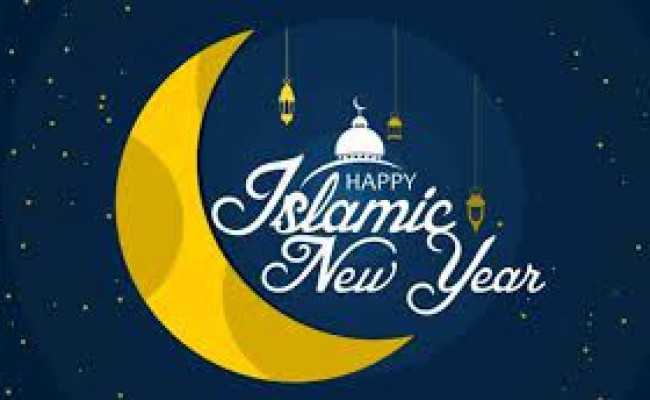Following the non-sighting of the crescent of Muharram, the first month in the Islamic lunar calendar on Thursday, July 28, 2022, Saturday, July 30, 2022, was declared by the Sultanate Council in Nigeria as the first day of the new Hijrah year, the 1444th year after the guided migration of Prophet Muhammad, peace be upon him (PBUH), from Makkah to Madina. This historic relocation, which took place in 622 Christian Era (CE), is referred to as the Hijrah. The Islamic calendar, which is purely based on lunar cycles, was introduced in 638CE by Umar bn Al-Khattab (RA), the second Caliph of Islam and a close companion of the Prophet (PBUH).
Umar bn Al-Khattab (RA), consulted his advisers on the starting date of the Islamic calendar and it was agreed that the most appropriate reference point for the Islamic calendar was the year in which the Hijrah took place. The starting date for the calendar was chosen on the basis of lunar years; beginning from the first day of Muharram. The Hijrah is the central historical event of early Islam, which led to the foundation of the first Muslim city-state and a turning point in Islamic and world history. Hijrah years are identified by adding the acronym ‘AH’ which stands for ‘After Hijrah’ at the end.
The Hijrah calendar consists of 12 lunar months namely: Muharram, Safar, Rabi ul-Awwal, Rabi ul-Akhir, Jimad al-Ula, Jimad al-Akhirah, Rajab, Sha’ban, Ramadan, Shawwal, Dhul Qa’dah, and Dhul Hijjah. Allah, the Almighty, says in Qur’an 9:36 “Indeed, the number of months with Allah is 12 (lunar) months in the register of Allah (from) the day He created the heavens and the earth; of them, four are sacred.”
Since the Hijrah calendar is purely lunar, it is shorter than the Gregorian calendar by about 11 days every year. The months in the Hijrah calendar are not associated with seasons; meaning that major Muslim festivals may occur over time in different seasons or at different times of the same Hijrah month. For example, the Hajj and Ramadan can take place in the summer as well as the winter. According to astrophysicists, it requires over a 33-year cycle for lunar months to take a complete turn and fall during the same season.
The requirement in Islam for some rites to be observed on specified days underscores the significance of the Hijrah calendar. For instance, while the Ramadan fast begins on the first day of the Month of Ramadan, pilgrimage (Hajj) rites are observed between the 8th and 13th day of Dhul Hijjah. The two major festivals in Islam, Eid el-Fitr and Eid el-Adha, are respectively observed on the first day of the month of Shawwal and 10th day of Dhul Hijjah. Allah, the Almighty, states in Qur’an 2:189 “They ask you (O Muhammad) about the new moons. Say, ‘They are measurements of time for the people and for Hajj…”
The past one year had been rough and tough for many Nigerians. Inflation, incessant collapse of the national grid, free fall of the naira, petrol queues and unpredictable pump-price of petrol characterized the experience of many Nigerians in 1443 AH. Corruption, which this administration promised to tackle, yet remains a scourge in the country. Insecurity, especially in recent weeks, has worsened beyond the imagination of many Nigerians.
Besides giving gratitude to Allah for keeping us together as a country, the beginning of a new Hijrah year should be a period for sober reflection. Four decades earlier, Nigeria was one country her citizens, and foreigners alike, cherished to reside in. Unfortunately, successive leadership and governance failures negatively transformed many people from being patriotic, honest, altruistic and God-fearing citizens into corrupt, wicked, scandalous and self-serving individuals. Unless we collectively resolve, as leaders and the led, to abandon the evil path of corruption, injustice and greed, which a huge segment of the country’s population is treading with impunity, the country may well be doomed to linger in its current national misfortunes because Allah states in Qur’an 8:53 that He “will never change the grace which He has bestowed on a people until they change what is in their (own) souls.” It is time Nigerians put common national interests above personal concerns.
In the same way that the Prophet (PBUH) migrated from his birthplace for the sake of propagating the Truth inspired by Allah, Muslims are by the same token enjoined to ‘migrate’ from religious bigotry and violence to tolerance and peaceful coexistence. Given the deep rooted mutual mistrust among followers of different religions in the country, we call on Muslims to use the occasion of the new Hijrah year to build bridges of understanding between them and followers of other religions. We encourage them to strengthen everything that promotes social cohesion; disregarding such things that seek to divide us.
As a sacred period and one of the four months in which fighting is prohibited, we urge Muslims to take advantage of the new Hijrah year to offer special prayers for the country and its leadership; seeking divine intervention in all the critical challenges bedevilling Nigeria including kidnapping, banditry, insurgency, bad governance and dwindling economy. Happy New Hijrah Year!

 Join Daily Trust WhatsApp Community For Quick Access To News and Happenings Around You.
Join Daily Trust WhatsApp Community For Quick Access To News and Happenings Around You.


